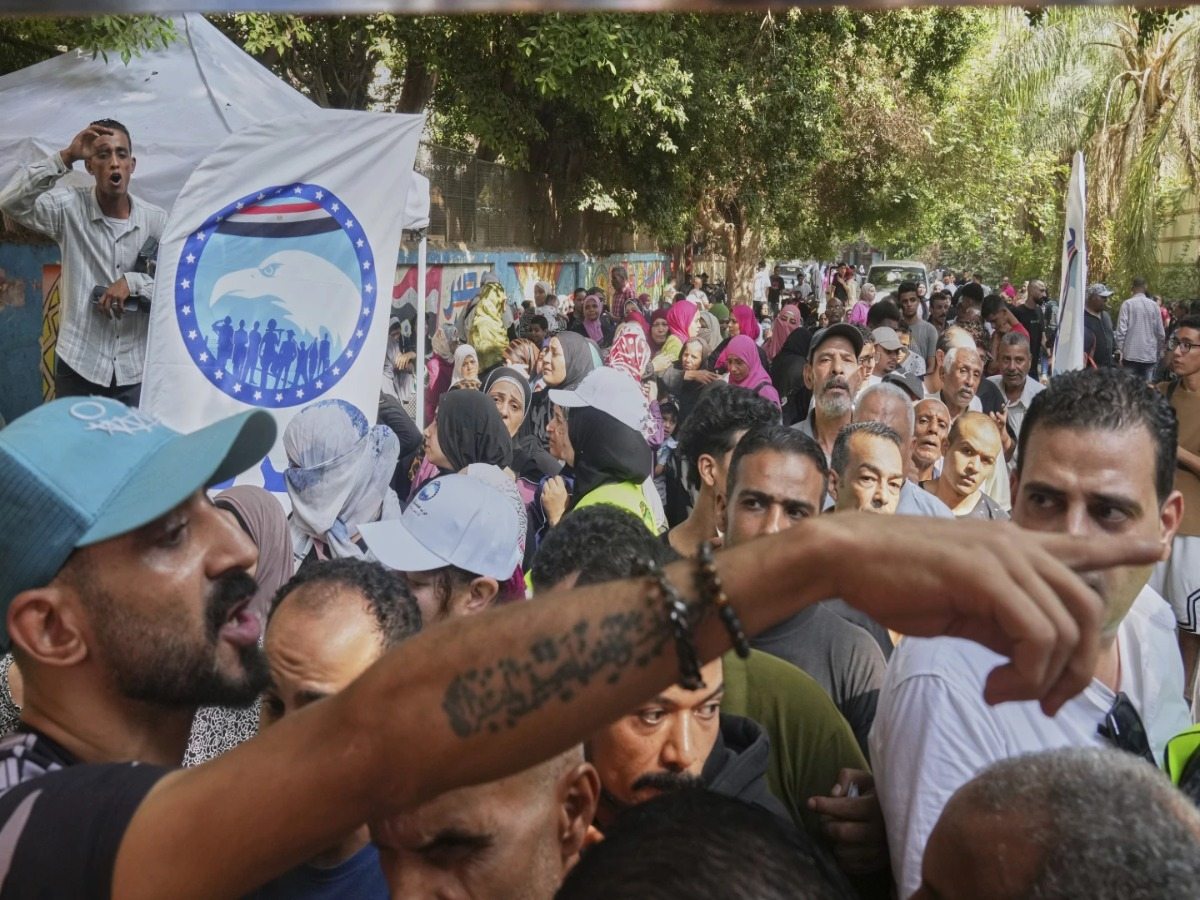Amid economic strain and political fatigue, Egyptians headed to the polls on Monday to vote in Senate elections that will fill two-thirds of the chamber’s 300 seats. The Senate, a relatively new upper house created in 2019, plays a consultative role alongside Egypt’s more influential lower house of parliament, offering input on legislation, constitutional amendments, and national policy.
Over 63 million Egyptians were eligible to cast ballots across more than 8,000 polling centers, with voting scheduled to conclude Tuesday. The remaining 100 Senate seats will be filled through presidential appointments. Final results are expected on August 12.
The election comes at a time when widespread public frustration is on the rise over Egypt’s stagnant economy. Citizens continue to struggle with daily surges in food and fuel costs, as inflation eats away at already strained household budgets.
READ ALSO: 15 Egyptians dead as migrant boat capsizes off Libya’s coast near Tobruk
Sherine Abdel Azim, a Senate hopeful representing the liberal-leaning Free Egyptians Party, shared insights from the campaign trail. Speaking to The Associated Press, she said reactions from voters varied, while some arrived with a clear party choice, others chose to void their ballots without offering explanations.
Watch a recent episode of The BreakDown podcast below and subscribe to our channel PanaGenius TV for latest episodes.
She added that some constituents, although unsure about individual candidates, still voted to signal their support for the government, particularly its diplomatic position regarding the ongoing Gaza conflict. Gaza, which borders Egypt, is historically and culturally significant to the country, as many Egyptians trace their roots to Palestinians displaced by the creation of Israel.
“I wasn’t fulfilled in just sharing my opinions on social media or through journalism. I wanted to have a voice inside the Senate,” said Abdel Azim, who also serves as a deputy editor-in-chief at the state-run Ahram newspaper. Her foray into politics began in 2012, during the post-Arab Spring era following the ousting of long-time President Hosni Mubarak.
Among more than 400 candidates competing in this year’s Senate race, Abdel Azim has campaigned across various Cairo neighborhoods, including Materya, Ain Shams, Gamelya, and Al-Azhar. She noted that many residents are deeply concerned about hospital conditions, access to medical insurance, and the unchecked spread of tuk-tuks, three-wheeled motorized rickshaws that have become both vital and disruptive in crowded districts.
Another hot-button issue is the recently amended rental law, which ends decades-long rent controls and allows property owners to increase prices on older contracts. This change has sparked anxiety among tenants.
“These are rightful demands coming from average citizens who love their country, but want to feel supported in these matters,” Abdel Azim said.
This is only the second Senate election since the institution was introduced via constitutional amendments in 2019. While authorities claimed the new chamber would strengthen political engagement, critics argue it served primarily to consolidate power. The same reforms extended presidential term limits, enabling President Abdel-Fattah el-Sissi to potentially remain in office through 2030, while also expanding the military’s influence over civilian affairs.
READ ALSO: Egypt offers free transport as Sudanese refugees begin journey back to war-torn homeland
Egyptians living abroad cast their ballots last weekend at consulates in 117 countries.










